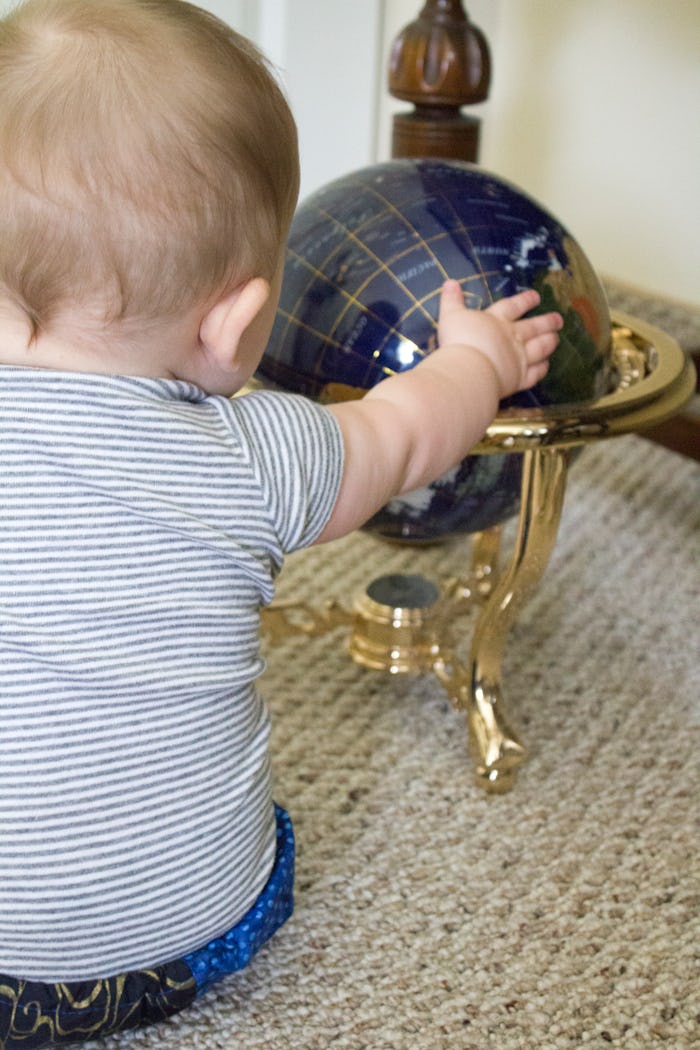Life

7 Baby Naming Traditions From Around The World, Should You Want Some Cultural Inspiration
What’s in a name? A lot of tradition, history, and background goes into someone’s personal moniker. And when it comes time to name a brand-new baby, it is no surprise that many people look to their own cultures and backgrounds for guidance. After all, these traditions likely influenced your own name. Furthermore, the many baby naming traditions from around the world prove that there are endless ways to approach the process of bestowing a name on a new person.
Inspired by religious traditions, cultural attitudes, and even popular naming trends, these traditions run the gamut. From the creative names in Brazil to the carefully crafted names in Iceland, babies around the world get their names in a variety of interesting and expressive ways.
So if you are feeling burned out from browsing the thousands of names in baby books and websites, consider the ways your fellow mothers in countries around the world go about the process of naming their children. Take heart in knowing that naming a baby is such a daunting task that all of these cultures had to come up with guidelines for it. Mothers all over the world have faced the same predicament you’re dealing with right now.
1Brazil
According to this account from Slate, Brazilians have a lot of leeway when it comes to naming their children, so creative names such as Aeronauta or Orozimbo are sometimes used. (Although the article notes that most Brazilians have more straightforward names.)
2Egypt
Accoridng to NPR, Egyptian babies undergo a rite of passage called Sebou when they are 7-days-old, which establishes that baby as a new member of the family. Furthermore, as the Huffington Post explains, a baby’s name may be decided at this time by assigning a potential name to each of three candles; the one that burns longest is the winner.
3Iceland
As reported by Wall Street International, many babies in Iceland are not named at birth. Rather, the parents get to know their new family member’s personality for a few months before bestowing a name, which is generally chosen from a list from the Icelandic Naming Committee (Mannanafnanefnd), designed to protect Iceland’s cultural heritage.
4Zimbabwe
As a New York Times's article explains, baby names in Zimbabwe are designed to communicate a specific meaning, such as Smile or Rain. This tradition has continued even as more and more babies are given English names.
5Greece
The Greek Orthodox Archdiocese of America outlines the Greek tradition for naming children: new parents name their firstborn child after the Greek Orthodox spouse's parent. (Easy decision, right?) This tradition is now up to the parents, and some opt to keep the Greek grandparent’s name as a baptismal name instead of a legal moniker.
6America
Psychology Today provides an interesting outline of the rich history of Native American’s naming traditions. Names are descriptive, often reference nature, and may change when children undergo new life experiences, such as adolescence. They may also have a secret name used only for spiritual purposes.
7Turkey
According to an article published in the book Kadına Özgü-Kadın Araştırmacılardan Derleme ve Araştırmalar, Turkish tradition holds that names may have an effect on babies' characters as they grow to adulthood, so parents choose very carefully.
Images: Quinn Dombrowski,Daniel Zanini H., David Stanley, Moyan Brenn, Richard Pluck, mariusz kluzniak, Nicholas A. Tonelli, Moyan Brenn / Flickr